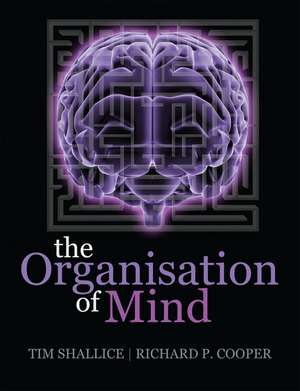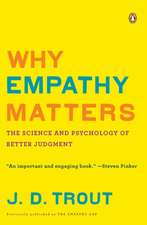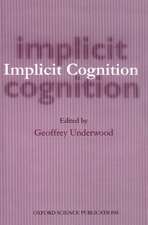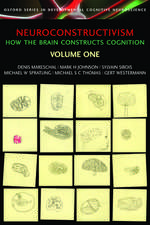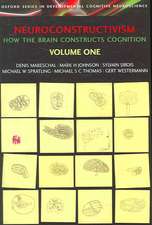The Organisation of Mind
Autor Tim Shallice, Rick Cooperen Limba Engleză Paperback – 17 mar 2011
Preț: 442.61 lei
Preț vechi: 593.08 lei
-25% Nou
Puncte Express: 664
Preț estimativ în valută:
84.70€ • 90.57$ • 70.62£
84.70€ • 90.57$ • 70.62£
Carte disponibilă
Livrare economică 17-22 martie
Preluare comenzi: 021 569.72.76
Specificații
ISBN-13: 9780199579242
ISBN-10: 0199579245
Pagini: 608
Ilustrații: 200 illustrations
Dimensiuni: 196 x 264 x 29 mm
Greutate: 1.43 kg
Editura: OUP OXFORD
Colecția OUP Oxford
Locul publicării:Oxford, United Kingdom
ISBN-10: 0199579245
Pagini: 608
Ilustrații: 200 illustrations
Dimensiuni: 196 x 264 x 29 mm
Greutate: 1.43 kg
Editura: OUP OXFORD
Colecția OUP Oxford
Locul publicării:Oxford, United Kingdom
Recenzii
After reading The Organisation of Mind, I now feel that no one should be allowed to adjudicate on a thesis or a grant application involving functional imaging and psychology without showing evidence of having read and considered this very complex and intellectually ambitious book. It will likely be 10 years before it is properly appreciated.
I can recommend this book to every neuropsychologist... it is more than worth the money!
I can recommend this book to every neuropsychologist... it is more than worth the money!
Notă biografică
Tim Shallice was the founding director of the Institute of Cognitive Neuroscience, part of University College London, where he is an emeritus professor. He has been a professor in the Cognitive Neuroscience Sector of SISSA, Trieste since 1994. He was influential in laying the foundations for the discipline of cognitive neuropsychology, by formalising many of its methods and assumptions in the book From Neuropsychology to Mental Structure. He has also worked on many core problems in cognitive neuropsychology, and cognitive neuroscience including executive functions, language and memory. Richard Cooper originally studied mathematics and computer science at the University of Newcastle, Australia. He obtained a Commonwealth Scholarship to complete his PhD in Cognitive Science at the University of Edinburgh, before taking up a PostDoc position at the Department of Psychology at University College London, in 1990, to work with Professors Fox and Shallice. In 1995 Cooper moved to a lectureship in the Department of Psychological Sciences at Birkbeck, University of London. He is currently Reader in Cognitive Science in that department. He has published extensively in computational cognitive modelling and led the development of the COGENT graphical cognitive modelling environment.
